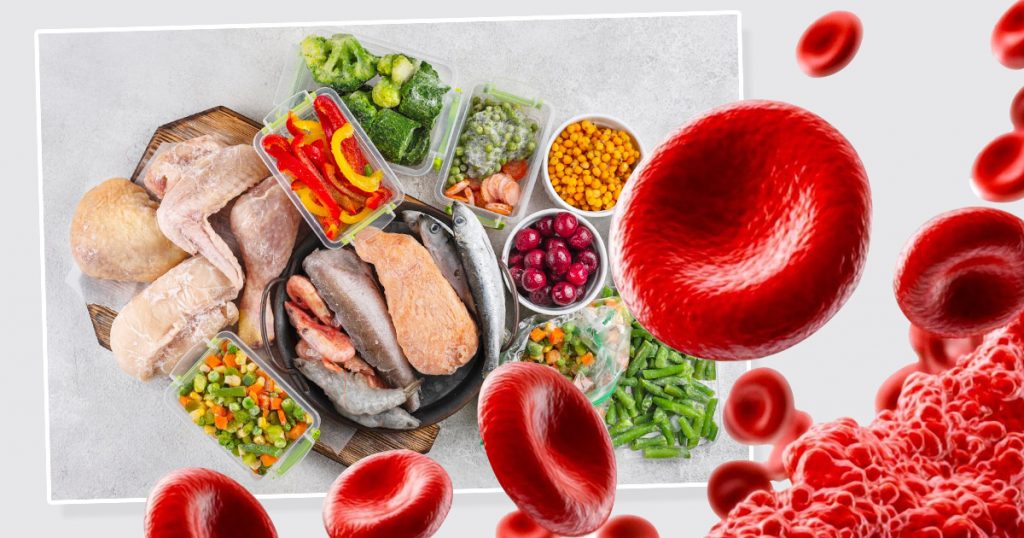Platelets are tiny cells in your blood that are essential for clotting and stopping bleeding. When levels drop too low, it can lead to problems like excessive bruising, slow healing, and even internal bleeding. A balanced diet filled with nutrient-dense foods can support your body’s ability to produce and maintain healthy platelet levels. Let’s dive into some of the best foods to include.
Papaya
Papaya has been traditionally recognized for its ability to boost platelet counts, especially during illnesses like dengue fever. The fruit is packed with vitamin C, which supports the immune system and enhances platelet production. Beyond the fruit, papaya leaves are known for their concentrated nutrients. Studies suggest that compounds in papaya leaf extracts can stimulate platelet formation and increase their lifespan. Regularly eating fresh papaya or drinking papaya leaf juice may help maintain a healthy platelet count while supporting overall immune health.
Mangoes
Mangoes are another tropical fruit rich in vitamin C and antioxidants. These nutrients protect platelets from oxidative stress, ensuring they function properly. Mangoes also contain vitamin A, which supports cell growth, including platelet production. Adding mangoes to your diet as a snack or in smoothies provides a delicious way to improve overall blood health.
Strawberries
Strawberries are not just sweet and delicious—they’re also packed with nutrients that support blood health. These bright red berries are loaded with vitamin C, folate, and antioxidants. Folate, in particular, is critical for producing new blood cells, including platelets. The antioxidants in strawberries protect cells from damage caused by free radicals, which can negatively impact platelet function. A handful of strawberries daily can boost your platelet count and overall well-being.
Salmon
Salmon is one of the best sources of omega-3 fatty acids, which have powerful anti-inflammatory properties. Chronic inflammation can sometimes suppress platelet production, so including anti-inflammatory foods like salmon helps keep the process balanced. Salmon is also rich in vitamin B12, an essential nutrient for producing healthy red blood cells and platelets. Consuming salmon twice a week, grilled or baked, can support a healthier platelet count and improve cardiovascular health.
Avocado
Avocados are a nutrient powerhouse. They’re rich in healthy monounsaturated fats, vitamin E, and folate. Vitamin E acts as an antioxidant, protecting platelets from oxidative damage and helping them function more effectively. The folate in avocados supports the production of new platelets. Additionally, their healthy fats improve nutrient absorption, making them an excellent food to include in salads, spreads, or simply on toast.
Beef Liver
Beef liver is a nutritional heavyweight when it comes to supporting platelet health. It’s a great source of iron, vitamin B12, and vitamin A, all of which are crucial for producing healthy blood cells, including platelets. Iron helps prevent anemia, which is often associated with low platelet levels. Vitamin B12 promotes cell division and platelet production, while vitamin A supports overall blood health. Eating beef liver in moderation, perhaps once a week, can be a powerful addition to your diet.
Pumpkin
Pumpkin is an often-overlooked food that’s incredibly beneficial for blood health. It’s rich in beta-carotene, which the body converts into vitamin A. This nutrient plays a vital role in cell growth and platelet formation. Pumpkin also contains antioxidants that reduce inflammation and support overall immune function. Adding pumpkin to soups, baked dishes, or even smoothies can give your body a nutritional boost.
Cantaloupe
Cantaloupe is another fruit loaded with vitamin C, an essential nutrient for boosting platelet function and supporting the immune system. Its high water content also keeps you hydrated, which is vital for maintaining healthy blood circulation. Cantaloupe is easy to add to your diet—slice it up for breakfast, enjoy it as a refreshing snack, or blend it into a smoothie for a hydrating and nutrient-packed treat.
Tuna Canned in Water
Canned tuna is an affordable and convenient option for boosting your platelet count. It’s rich in vitamin B12, omega-3 fatty acids, and protein. Omega-3s help reduce inflammation, which can sometimes interfere with platelet production. Vitamin B12 supports red blood cell and platelet formation. Opt for tuna canned in water to keep it light and versatile—add it to salads, sandwiches, or pasta dishes for a quick and healthy meal.
Clams
Clams are another nutrient-dense food that supports blood health. They’re incredibly high in iron and vitamin B12, two nutrients that are essential for red blood cell and platelet production. Iron deficiency can lead to low platelet counts, so including clams in your diet can address this issue. Clams are also a lean protein source, making them a healthy choice. Steam them with garlic and lemon for a flavorful, nutrient-packed meal.
Enhance Platelet Count with Smart Food Choices
The foods mentioned above provide a powerful combination of nutrients to support healthy platelet production and function. A well-rounded diet that includes these foods can make a noticeable difference in maintaining healthy platelet levels. For those with medical conditions or concerns about low platelet counts, consulting a healthcare professional is essential to create a tailored plan. Small dietary changes can go a long way in boosting blood health and improving overall wellness.
